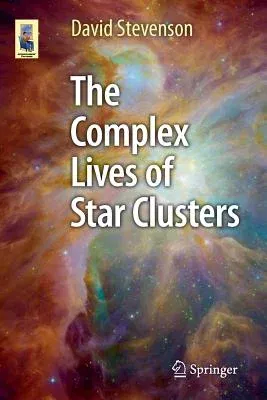David Stevenson
(Author)The Complex Lives of Star Clusters (2015)Paperback - 2015, 20 May 2015

Qty
1
Turbo
Ships in 2 - 3 days
In Stock
Free Delivery
Cash on Delivery
15 Days
Free Returns
Secure Checkout

Part of Series
Astronomers' Universe
Print Length
343 pages
Language
English
Publisher
Springer
Date Published
20 May 2015
ISBN-10
331914233X
ISBN-13
9783319142333
Description
Product Details
Author:
Book Edition:
2015
Book Format:
Paperback
Country of Origin:
NL
Date Published:
20 May 2015
Dimensions:
23.39 x
15.6 x
1.91 cm
Genre:
Science/Technology Aspects
ISBN-10:
331914233X
ISBN-13:
9783319142333
Language:
English
Location:
Cham
Pages:
343
Publisher:
Series:
Weight:
503.49 gm